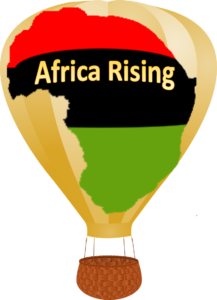In a couple of past posts on philanthropy [Prosperity and Altruism and More on Prosperity and Altruism], I discussed how altruism increases along with per capita income. The people discussed in those posts were not the super-rich, like Bill Gates or Warren Buffet, but people who have nevertheless done well as they have been positively touched by globalization and have tried to pass their good fortune along. There are individuals, like Gates and Buffet, who have done extremely well and have reached the pinnacle of the economic pyramid. According to Landon Thomas, Jr., many of these super-rich people are also investing their wealth in philanthropic endeavors [“A New Breed of Billionaire,” New York Times, 14 December 2007]. These nouveau riche philanthropists are found all around the world. Thomas begins his article in Turkey.
“Stuck in a traffic jam in his bulletproof BMW, the richest man in Turkey lets loose with a satisfied grin. Since 2000, Husnu M. Ozyegin has spent more than $50 million of his own money, building 36 primary schools and girls’ dormitories in the poorest parts of Turkey. Next to the Turkish government, Mr. Ozyegin is the biggest individual supporter of schools in the country — and an official from the education ministry has told him that his market share is increasing. ‘Not bad,’ he says in his gruff, cigarette-scarred voice as he pockets his mobile phone. ‘If I can have an impact on one million Turkish people in the next 10 years, I will be happy.'”
Once people looked only to the U.S., Europe, and Japan to find billionaires, but no longer. Thomas points out that the way these individuals accumulated their wealth is reminiscent of America’s so-called “robber barons,” who used questionable practices and a lax regulatory environment to dominate their respective industrial sectors and amass huge personal fortunes. Many of these robber barons, like John D. Rockefeller, Henry Ford, and Andrew Carnegie, established philanthropic foundations and established a pattern of altruism that other wealthy donors could emulate. This is what Thomas is seeing happen around the globe.
“The global wealth boom has created a new breed of billionaire in once-destitute countries like Turkey, India, Mexico, and Russia. Propelled by their rising economies, robust currencies and globally competitive companies, they have ridden a surge in local stock markets that have reached previously untouchable heights in a short five-year timeframe. Now, a number of them are using their wealth to bolster their standing and push for social changes. These entrepreneurs, who have made their billions in private sector industries like telecommunications, petrochemicals and finance, are distinct from a past generation of international billionaires, most with ties to Middle Eastern oil or valuable land holdings. Not only have they become the richest men in their countries; they are among the wealthiest in the world. For these emerging economies, where loose regulation, opaque privatization processes and monopolistic business practices abound, this extraordinary and uneven creation of wealth rivals in many ways the great American fortunes made at the turn of the 20th century. While such countries have long been accustomed to vast disparities between a tiny class of the wealthy elite and the impoverished masses, the new elite shares some characteristics with counterparts in the United States. And just as Rockefellers, Carnegies and Morgans once used philanthropy to smooth the rough edges of their cutthroat business reputations — as have a current generation of wealthy Americans that includes Bill Gates of Microsoft and Sanford I. Weill of Citigroup — local billionaires in emerging markets are trying to do the same.”
Like Ozyegin, many of these new philanthropists target education. Health issues are another popular cause.
“Carlos Slim Helu, the telecommunications entrepreneur in Mexico who is worth more than $50 billion, has pledged billions of dollars to his two foundations that will aid health and education. Roman Abramovich, Russia’s richest man, who has a net worth of $18 billion, has channeled more than $1 billion into the impoverished Arctic area of Chukotka, where he also serves as governor, building schools and hospitals. And in India, Azim Premji, the chairman of the software company Wipro who is worth $17 billion, has established his own foundation that supports elementary education. … ‘What we are seeing in these countries,’ said Jane Wales, president of the Global Philanthropy Forum, ‘are people emerging from the private sector with tremendous wealth who are attracted to highly strategic philanthropy.'”
Thomas indicates that many people credit people like Gates and Buffet for providing a model of giving that encourages other wealthy individuals to follow their example. As I pointed out earlier, however, the model was established in the U.S. by the robber barons but philanthropic activity by wealthy families can be traced far back in history. The renaissance, for example, could not have happened without wealthy benefactors supporting artists, philosophers, scientists, and musicians. Most of the newly rich are entrepreneurs, like Mr. Ozyegin.
“Like many self-made billionaires, Mr. Ozyegin has a direct, demanding manner, and a day spent traveling with him does not yield much casual conversation. He carries two cellphones, Throughout a long day he juggles calls from his wife, his assistant, his son and assorted government bureaucrats, as well as the managers of his various businesses. He typically works 11-hour days, not solely from his suite of offices but also from his car, plane or boat, checking in on his far-flung operations in Turkey as well as Russia, Romania and China. ‘I’m first generation, that gives me satisfaction,’ he said. ‘Getting to the top is not so easy; staying there is more difficult.’ Mr. Ozyegin’s grandparents came to the southern Turkish city of Izmir from the Greek island of Crete in the late 19th century, during the dying days of the Ottoman Empire. The son of a doctor, he attended Robert College, an elite academy in Istanbul, before setting off to Oregon State University in 1963 with $1,000 in his pocket. An overachiever, he played basketball and led the student government, but earned mediocre grades. Harvard Business School seemed like a long shot given that he was in need of a scholarship. But he attached a picture of himself welcoming Robert F. Kennedy to Oregon State to his application and was accepted. ‘I guess they liked me for my leadership abilities,’ he said. After a successful banking career, he founded Finansbank in 1987, selling his two homes and borrowing $3 million to get the deal done.”
Thomas concentrates on Ozyegin because represents all successful entrepreneurs who have seized opportunities presented by globalization.
“As a businessman, his frequent interaction with Southeast Asia, China and Russia has impressed upon him the need for Turks to become more competitive in today’s global economy. ‘The most important problem that Turkey has is education,’ he said. He cites the rapid increase of applications to Harvard Business School from Chinese and Indian students. Turkey, a smaller country, sends only four to eight students a year, said Mr. Ozyegin, who meets with the students when he visits. Beyond his public school investments, Mr. Ozyegin has plans to spend up to $1 billion over the next 15 years on a new private university, to be called Ozyegin University.”
Ozyegin understands, especially because of his banking background, that foreign direct investment can be attracted to countries with healthy and educated populations. It is only after those conditions are met that investors start looking at things like government policies, corruption, transportation systems, and so forth. The reality is that a country with good health and education systems are generally better run than those that don’t. Ozyegin is trying to set an example for the Turkish government to follow.
“‘I want to do something on a major scale,’ he said. ‘My vision is that we can train and export people like India does.’ Since he started his building program in 2000, Mr. Ozyegin has completed 36 schools and girls’ dormitories at a cost that varies from $400,000 to $1.8 million each. He wants to reach 100 by 2010. He works closely with the government, with most of the building taking place in the country’s poorest regions in the south and northeast. ‘That is a lot, it is a very significant number,’ said Filiz Bikmen, the executive director of Tusev, a philanthropy foundation in Istanbul. Turkey has the lowest ratio of girls to boys in primary and secondary school of any country in the Organization for Economic Cooperation and Development, which requires its 30 members to meet minimum requirements for living standards and democratic practices. Turkey’s low standing is a result of a traditional culture that, especially in poorer areas, places a higher premium on a boy’s education than a girl’s. In a country where the ruling party draws its root support from an electorate that is becoming more Islamic in attitude and outlook, Mr. Ozyegin’s aim to reach out to undereducated girls touches a sensitive cultural vein (through his wife’s foundation, Acev, he has also helped pay for women’s literacy and early education programs in poor parts of the country.) A practicing Muslim but avowedly secular in outlook, Mr. Ozyegin embodies the hopes as well as fears of Turkey’s elite, many of its ranks now supporters of the ruling Justice and Development party, which has led the revitalization of the Turkish economy. Mr. Ozyegin hopes that focusing on education as an economic development tool will help transcend the current bitter disputes over religious practice, including whether the increase in the number of women wearing head scarves signifies the emergence of a more Islamic, less secular Turkey.”
Ozyegin has big dreams. He wants Turkey’s educational levels to match Europe’s within three decades. To achieve that, he is building schools in Turkey’s poorest regions, including the Kurdish region. He is giving away two percent of his wealth every month — a remarkable figure — to make his dreams come true. As I’ve noted before, grand visions must be matched by bold actions — a formula in which Mr. Ozyegin obviously believes.




